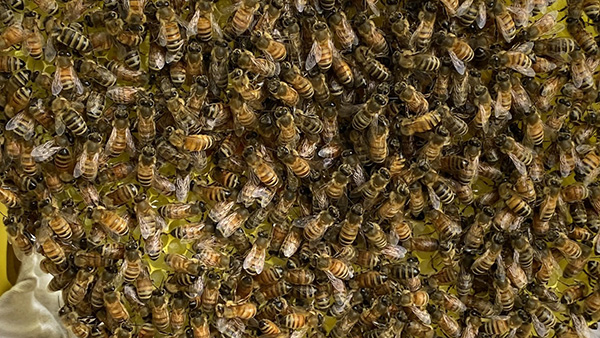
In this knowledge share, you look to the remarkable intelligence of nature by studying how rewilded honey bees survive and thrive without human intervention. This exploration will delve into the fascinating history of how honey bees arrived in the Americas and how the industrial practices of modern beekeeping have become unsustainable—both for the bees and for the ecosystems they support.
Alysia will share her experience with small-scale beekeeping practices at Backland NY, focusing on biomimicry and natural beekeeping principles. Key methods include: (1) Swarm-baiting, (2) DIY top-bar hives, (3) Freeform honeycomb, (4) Minimal inspections, (5) Treatment-free hives, (6) Chemical-free lands, (7) Widely-spaced bee yard, (8) Stationary bee yards.
By exploring these methods, you will aim to shift the focus from a human-centered view of beekeeping to one that respects the intelligence and autonomy of the honey bee as an organism. The honey bee is not merely a passive worker in the industrial agricultural system—rather, it is a complex, self-regulating organism capable of thriving independently when provided with the right conditions. Through rewilding, bees can adapt to local ecosystems, increase genetic diversity, and re-establish resilience in the face of environmental pressures.
This knowledge share offers an important perspective on alternatives to conventional beekeeping, rooted in the ecological wisdom of the Northeast beekeeping community, and invites us to reconsider how we coexist with and care for these essential pollinators.
